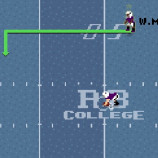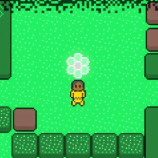- Word Games
- Paldoku
Advertisement
Advertisement
Advertisement
Advertisement
Advertisement
Advertisement

Paldoku
Paldoku requires patience and perseverance, especially when faced with challenging letter combinations or grid configurations. Stay focused and keep experimenting...
GAME INFO
Categories & Tags:
Introduction
Word games have an enduring appeal, captivating players with their blend of linguistic challenges and strategic gameplay. Paldoku, a unique word game, offers a fresh twist on the genre, combining elements of Sudoku and word formation puzzles. In Paldoku, players are tasked with filling a grid with letters to form valid words while adhering to Sudoku-like constraints. Whether you're a seasoned word aficionado or a newcomer to word games, mastering Paldoku requires a combination of vocabulary skills, logical reasoning, and strategic thinking. Here's a comprehensive guide to help you unlock the secrets of this captivating game.
Understanding the Basics
Paldoku is played on a grid divided into smaller squares, similar to a Sudoku board. Each square must be filled with a letter to form valid words horizontally and vertically. However, unlike Sudoku, where numbers cannot be repeated in the same row, column, or sub-grid, Paldoku imposes constraints on word repetition. Players must ensure that no word is repeated within the same row or column, adding an additional layer of complexity to the puzzle-solving process.
Formulating Your Strategy
Expand Your Vocabulary: A diverse vocabulary is key to success in Paldoku. Familiarize yourself with a wide range of words across different lengths and categories. Pay special attention to shorter words, as they can help you fill the grid more efficiently and unlock opportunities for longer words.
Strategic Word Placement: When placing words in the grid, consider their impact on adjacent rows and columns. Aim to create interconnected word formations that maximize scoring potential while adhering to the game's constraints. Strategic placement can help you avoid word repetition and create opportunities for multiple valid words within the same row or column.
Balance Word Lengths: Mix shorter and longer words to maintain balance and flexibility in the grid. While longer words typically yield higher scores, shorter words are essential for filling gaps and satisfying the constraints of the game. Aim for a harmonious blend of word lengths to optimize your scoring potential.
Advanced Strategies
Pattern Recognition: Sharpen your ability to recognize word patterns and common word structures. This skill allows you to identify word possibilities more efficiently and optimize your word-building strategy.
Anticipating Word Interactions: Consider the interactions between words as you fill the grid. Anticipate how the placement of one word may influence the formation of adjacent words and adjust your strategy accordingly.
Iterative Refinement: Paldoku is a game of iterative refinement, requiring players to continuously assess and adjust their strategies as the grid evolves. Be open to revising your approach based on emerging word possibilities and evolving grid configurations.
Conclusion
Paldoku offers a refreshing blend of wordplay and puzzle-solving, challenging players to think strategically while expanding their vocabulary. By mastering the game's mechanics, honing your word-building skills, and embracing strategic thinking, you can unlock the full potential of Paldoku and revel in the satisfaction of solving its intricate puzzles.

























Discuss: Paldoku